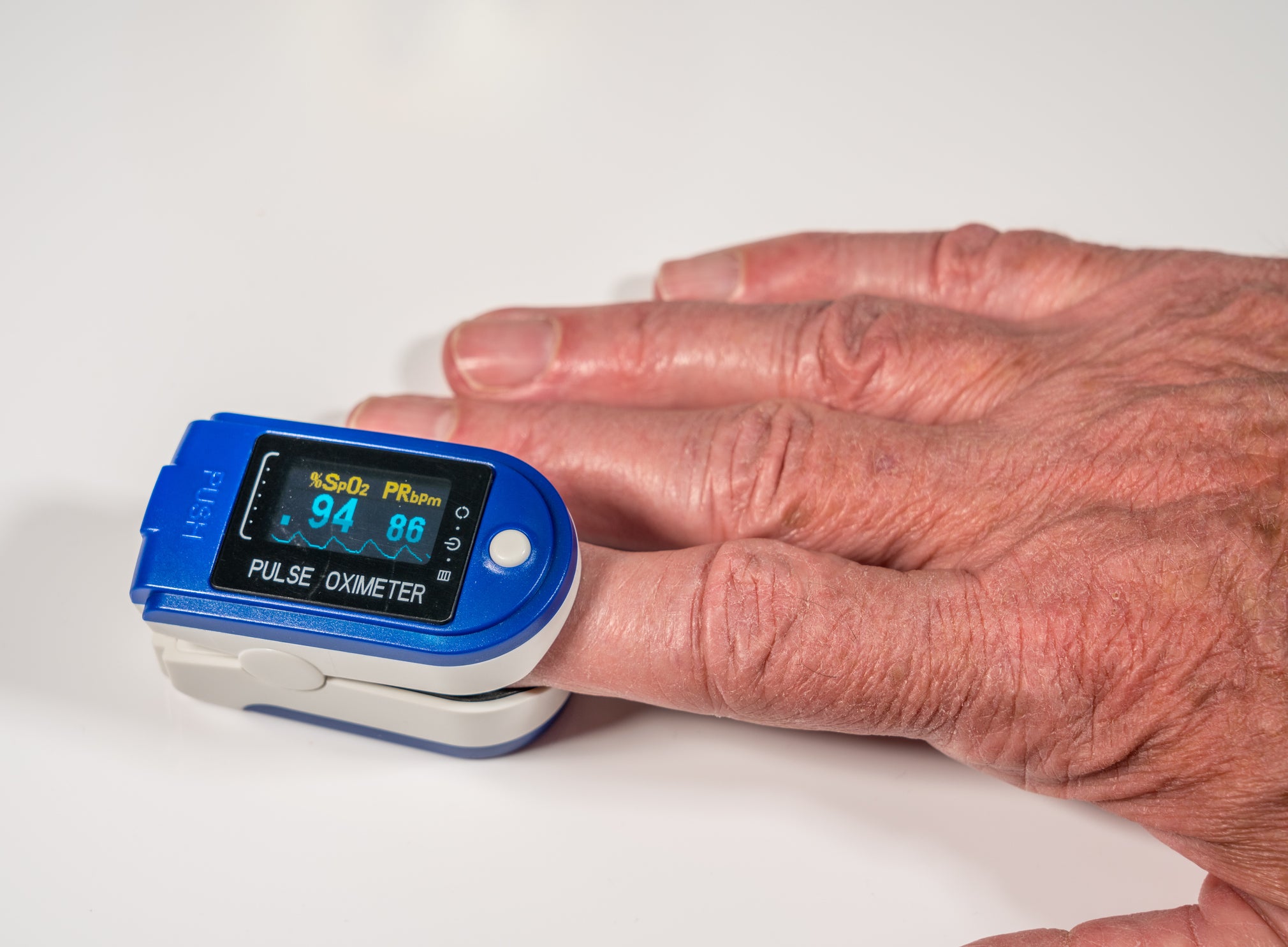Oximeters may be less accurate on black or brown skin, says new NHS guidance
The NHS said the devices ‘may be less accurate if you have brown or black skin’

Your support helps us to tell the story
From reproductive rights to climate change to Big Tech, The Independent is on the ground when the story is developing. Whether it's investigating the financials of Elon Musk's pro-Trump PAC or producing our latest documentary, 'The A Word', which shines a light on the American women fighting for reproductive rights, we know how important it is to parse out the facts from the messaging.
At such a critical moment in US history, we need reporters on the ground. Your donation allows us to keep sending journalists to speak to both sides of the story.
The Independent is trusted by Americans across the entire political spectrum. And unlike many other quality news outlets, we choose not to lock Americans out of our reporting and analysis with paywalls. We believe quality journalism should be available to everyone, paid for by those who can afford it.
Your support makes all the difference.Official NHS guidance has been changed for the use of blood oxygen monitors after it was found that they may not be as accurate when used on black and minority ethnic people.
Oximeters can overestimate the amount of oxygen in people who have deeper skin tones, according to NHS England and the Medicines and Healthcare products Regulatory Agency (MHRA).
Pulse oximeters are devices costing around £20 that typically clip on to a person’s finger. The devices send beams of light through the skin to measure oxygen levels in the blood.
More than 300,000 were sent out by NHS England so that Covid-19 patients are able to monitor their oxygen levels at home if they are not unwell enough to go to hospital.
The NHS website has been updated with a clarification for oximeter users who have dark skin.
It reads: “There have been some reports [oximeters] may be less accurate if you have brown or black skin. They may show readings higher than the level of oxygen in your blood.
“You should still use your pulse oximeter if you’ve been given one. The important thing is to check your blood oxygen level regularly to see if your readings are going down.”
The NHS also says that changes in the regular oximeter readings should be noted over time – rather than just the first reading being taken into account.
The guidance states: “By looking at changes in readings rather than just one reading, it means that even if an oximeter is not completely accurate, it is still possible to see if oxygen levels are going down.”
It comes after a disproportionate number of black, Asian and minority ethnic people have died with Covid-19 throughout the pandemic.
Dr Habib Naqvi, director of the NHS Race and Health Observatory, told Radio 4's Today programme on Saturday that concerns about the reliability of oximeters when used on people with deeper skin tones have increased over some time.
He said: “We have growing evidence highlighting inconsistencies in pulse oximeter readings amongst those with darker skin tones.
“It cannot and should not be ignored, particularly during the current Covid pandemic that is significantly having a disproportionate impact upon black and ethnic minority people.”
The potential limitations of all healthcare equipment on minority ethnic groups and those more susceptible to certain illnesses should be made “common knowledge”, he also said.
The NHS’s guidance change comes after the NHS Race and Health Observatory published a review into the accuracy of oximeters in April.
The review, by Dr Olamide Dada of Cardiff University School of Medicine, cites evidence from more than 30 years of inaccurate readings for those with deeper skin tones.
A normal oxygen level in the blood is between 95 per cent and 100 per cent. There are reports that many people suffering from Covid-19 with oxygen levels ranging between 70 and 80 per cent have been admitted to hospital.
Oxygen levels in the blood can drop to dangerously low levels without the patient noticing, in what is known as “silent hypoxia”. People whose oxygen levels have fallen below 92 per cent are urged to go to A&E for medical attention.
Join our commenting forum
Join thought-provoking conversations, follow other Independent readers and see their replies
Comments